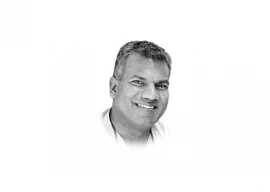
They say scratching old wounds causes greater pain. Rafik Hariri’s trial, 15 years later, had threatened to do just that. The UN-backed Special Tribunal for Lebanon (STL) announced its verdict on August 17. The judgment had been delayed as a mark of respect for the victims of the Beirut blast which occurred on August 4.
In the mid of February 2005, a suicide bomber detonated a truck of explosives near Beirut’s waterfront killing Rafik Hariri along with 22 others. After a preliminary UN investigation failed, the STL was set up in the Hague, in accordance with Lebanese law.
In its decision, the STL stated that there was no proof that Hezbollah or the Syrian leadership was involved. Out of the four men facing trial (all accredited to Hezbollah), three were cleared while Salim Ayyash was identified by prosecutors as being pivotal in the attack. The motivation was cited to be political and has been called an “act of terrorism designed to cause fear in the Lebanese population.”
Over the years, critics had pointed out the prodigious expense this absentee trial was incurring. The 400-member staff which included 11 judges cost $60 million annually. However, some say the rationale behind the high cost lies in how the murder provided the flicker that lighted the match of a revolution in Lebanon and changed the face of Lebanese politics. The resulting protests forced the Syrian army to end its presence in Lebanon. The following month, the March 8 (Hezbollah and pro-Syrian) and March 14 (Sunni, Christian and anti-Syrian) political coalitions emerged and partook in massive demonstrations. These alliances still define the direction of the country’s policies.
Notwithstanding the anticipation surrounding the trial, the streets of Beirut were nearly empty, devoid of unrest. Burials were still in process and the graveyard mounds had barely dried. Moreover, as had been envisaged by many, a week shy of the Beirut explosion, the Lebanese parliament had resigned and retreated to their usual antecedence of self-preservation.
For years, Lebanon’s population — 6.8 million currently — has been submerged in a steep economic crisis bolstered by the Covid-19 pandemic and the strain of absorbing Syrian refugees. The state has been absent from the daily lives of the Lebanese populace for quite some time now. In the aftermath of the blast, all foreign states/agencies who have come to Lebanon’s assistance have made it clear that aid will not be distributed via the government. This alone is testament to the depth of the problem.
Truth be told: Lebanon never really recovered from the 1975 civil war. The corruption and sectarian divides simply compounded an already alarming situation. The Beirut explosion was just the cream of the crop. At the moment, Lebanon’s citizens are distracted by the need to survive.
Rebuilding Beirut alone requires money that the country does not have — an estimated $15 billion. The calls for placing Lebanon under the French mandate showcase the sense of defeat the citizens now have. However, it is not practical for two reasons. Firstly, sovereignty once lost is very hard to regain. Secondly, it would set a precedence for the peoples of all distraught economies to turn to their former colonisers.
Reconstruction aside, the political system and the community as a whole need to be strengthened as well. Relying on external support is not sustainable and should only be used as a short-term stepping stone to find long-term plausible solutions. An example is the placement of a strict Capital Control Act in order to stabilise the exchange rate and stop the continued outpouring of resources. This needs to be backed by an audit of the central bank.
Creative minds and sincere intentions are the need of the hour.
Published in The Express Tribune, August 26th, 2020.
Like Business on Facebook, follow @TribuneBiz on Twitter to stay informed and join in the conversation.




1724152318-0/beyonce-(1)1724152318-0-165x106.webp)
1728213758-0/Tribune-Pic-(2)1728213758-0-165x106.webp)








COMMENTS
Comments are moderated and generally will be posted if they are on-topic and not abusive.
For more information, please see our Comments FAQ